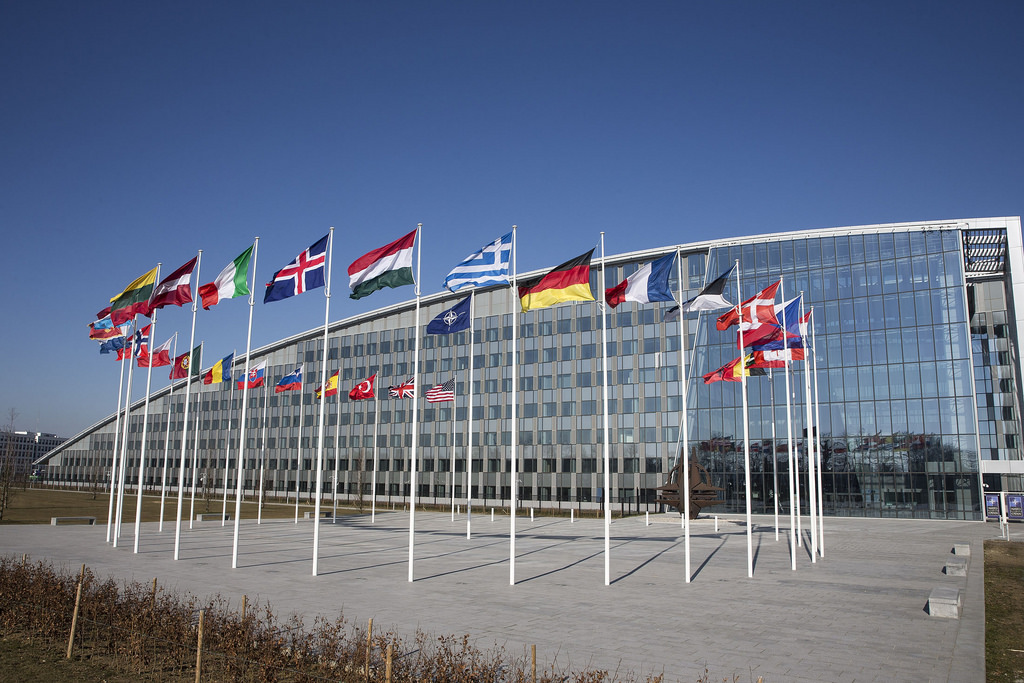Today's Headlines and Commentary
A suspect has been arrested in connection with the explosion in downtown Manhattan on Saturday night and a bombing elsewhere in New Jersey, the New York Times reports. Ahmed Khan Rahami, a U.S. citizen born in Afghanistan and a resident of Elizabeth, New Jersey, was taken into custody this morning following a gunfight with police.
A suspect has been arrested in connection with the explosion in downtown Manhattan on Saturday night and a bombing elsewhere in New Jersey, the New York Times reports. Ahmed Khan Rahami, a U.S. citizen born in Afghanistan and a resident of Elizabeth, New Jersey, was taken into custody this morning following a gunfight with police. Rahami is believed to be responsible for the bomb that exploded in a Manhattan dumpster this weekend, along with a second bomb that was found blocks away, undetonated. Police also connected Rahami to a backpack containing pipe bombs discovered near an Elizabeth train station and a explosion that occurred in Seaside Park, New Jersey on Saturday. The Washington Post reviews what we do and don’t know about Rahami so far.
Twenty-nine people were wounded in the explosion near the Chelsea neighborhood in lower Manhattan on Saturday but have all been released from the hospital, the Times writes. Despite initial assurances by state and city officials that the bombing did not appear to be terrorism, New York Mayor Bill de Blasio now says that “we have every reason to believe this was an act of terror.”
ISIS has claimed responsibility for a stabbing attack that injured nine people in a Minnesota mall on Saturday, the Post reports. The attacker, Dahir Aden, was shot dead by police in the midst of the attack. An FBI special agent indicated on Sunday that while the stabbing may have been an act of terrorism, Aden’s motives are not yet clear. According to President Obama, the Minnesota stabbing appears to have no link to Rahami’s activities.
The Syrian government has unilaterally declared the ceasefire brokered by the U.S. and Russia to be over and has begun air raids over Aleppo, Reuters tells us. The lull in fighting had originally been set to expire on midnight Sunday, but representatives from both Washington and the Kremlin had continued meeting over the past week in efforts to extend the fragile peace. Both Secretary of State John Kerry and the United Nations have rejected the Syrian government’s declaration and insisted that the ceasefire will continue until further notice. The Wall Street Journal has more on the ceasefire’s uncertain future.
The last few days of the ceasefire have been difficult ones. On Saturday, an airstrike conducted by U.S.-led coalition forces mistakenly hit Syrian regime troops in the eastern province of Deir al-Zour, killing 60 Syrian soldiers. The United States acknowledged the error on Sunday, saying the airstrike had been intended to target ISIS and that the planes ceased the attack after being informed by Russia that the airstrikes may have hit Syrian forces instead. The United Kingdom and Australia have confirmed their involvement in the mistaken attack.
Russia convened an emergency session of the UN Security Council in response to the airstrike, which quickly devolved into mutual acrimony as U.S. Ambassador Samantha Power charged Russia with “grandstanding” and walked out of the meeting when Russian Ambassador Vitaly Churkin began to speak. Buzzfeed has more. Meanwhile, the Times takes a look at how the airstrike demonstrates “the White House’s struggle to put together a coherent strategy in a multisided war.”
The mistaken bombing came at a tense time for Syria, with both Russia and the United States pointing fingers over the rocky implementation of the Syrian ceasefire, which was set to end at midnight on Sunday. The AP examines the repeated violations of the interim peace and the ceasefire’s further “unraveling” over the weekend with regime air attacks over Aleppo. As of this morning, Aleppo had yet to receive the truckloads of humanitarian aid that remain stalled in Turkey without assurances of safe passage from the Syrian government, which the ceasefire had been intended to allow.
But Secretary Kerry declared on Monday that humanitarian aid was on its way to besieged areas of Syria, the Times reports. In response to reports that the ceasefire had collapsed under pressure from the Syrian regime, the secretary stated, “We’ll see where we are today.”
The Iraqi government has begun to allow civilians to return to the embattled city of Fallujah, three months after ISIS forces were pushed out of the city. The Post examines their fraught homecoming.
Saudi Arabia has asked the UN Security Council to impose sanctions on Iran for supplying weapons to rebels in Yemen, the AP tells us. Meanwhile, the Post writes that the KSA is likely using white phosphorus munitions supplied by the United States in the war in Yemen, causing human rights groups to worry that indiscriminate use of the weapons might harm civilians in violation of international humanitarian law.
Saudi Foreign Minister Adel al-Jubeir hit back against Iranian Foreign Minister Javad Zarif’s recent Times op-ed with a piece of his own in the Wall Street Journal. Al-Jubeir argues that despite Zarif’s public statements about Iran’s commitments to fighting terrorism and extremism worldwide, the Iranian foreign minister’s op-ed was in fact “little more than insincere propaganda.”
Tensions between India and Pakistan are once again high following a terrorist attack on an Indian Army camp in Kashmir by the Pakistan-backed group Jaish-e-Mohammed, Defense One tells us. 17 soldiers were killed in the terrorist strike, which was the most deadly attack on India in a decade. Indian Prime Minister Narendra Modi has vowed to punish the attackers.
The Nigerian government has released new details of its failed negotiations with Boko Haram to release the over 200 girls kidnapped by the terrorist group. The Times writes that, according to Nigerian officials, the government has been in talks with Boko Haram since President Muhammadu Buhari took office in July 2015, only to repeatedly fail to obtain the girls’ release.
While police in New York continue to comb the city following this weekend’s events, world leaders are arriving in Manhattan for the UN General Assembly. The Post tells us that President Obama will convene a special UN summit on the refugee crisis on the sidelines of the General Assembly later this week. Obama will announce a commitment to accept 110,00 refugees into the United States over the next year in conjunction with similar pledges from other nations.
German Chancellor Angela Merkel’s party was hard hit by major losses in German elections as voters seemingly rejected Merkel’s commitment to welcoming large numbers of migrants into the country. Even in the face of electoral losses, however, Merkel maintained that her decision to welcome the migrants was “absolutely right.” The Times has more.
At the UN, Obama will meet with Israeli Prime Minister Benjamin Netanyahu to discuss a framework to end the Israeli-Palestinian conflict. The president will also meet with Chinese premier Li Keqiang in for a discussion that will likely involve Chinese relations with North Korea--a tense topic following the Hermit Kingdom’s recent nuclear test. The Times has more.
The debate over Edward Snowden continues to heat up, with the editorial board of the Washington Post—the same paper that originally published many of Snowden’s original disclosures—arguing that Snowden should not be pardoned. In The Intercept, Glenn Greenwald takes issue with the paper’s apparent change of heart. And in the Daily Beast, Shane Harris points out a number of inconsistencies between Snowden’s story and that of his former supervisor that suggest one of the two may be not be telling the whole truth.
ICYMI: This Weekend, on Lawfare
Rishabh Bhandari reviewed Lawfare’s week.
Carrie Cordero interviewed independent presidential candidate Evan McMullin on this week’s Lawfare Podcast.
In the Foreign Policy Essay, Jacob Olidort examined the Islamic State’s practice of indoctrinating young children as soldiers.
Email the Roundup Team noteworthy law and security-related articles to include, and follow us on Twitter and Facebook for additional commentary on these issues. Sign up to receive Lawfare in your inbox. Visit our Events Calendar to learn about upcoming national security events, and check out relevant job openings on our Job Board.





